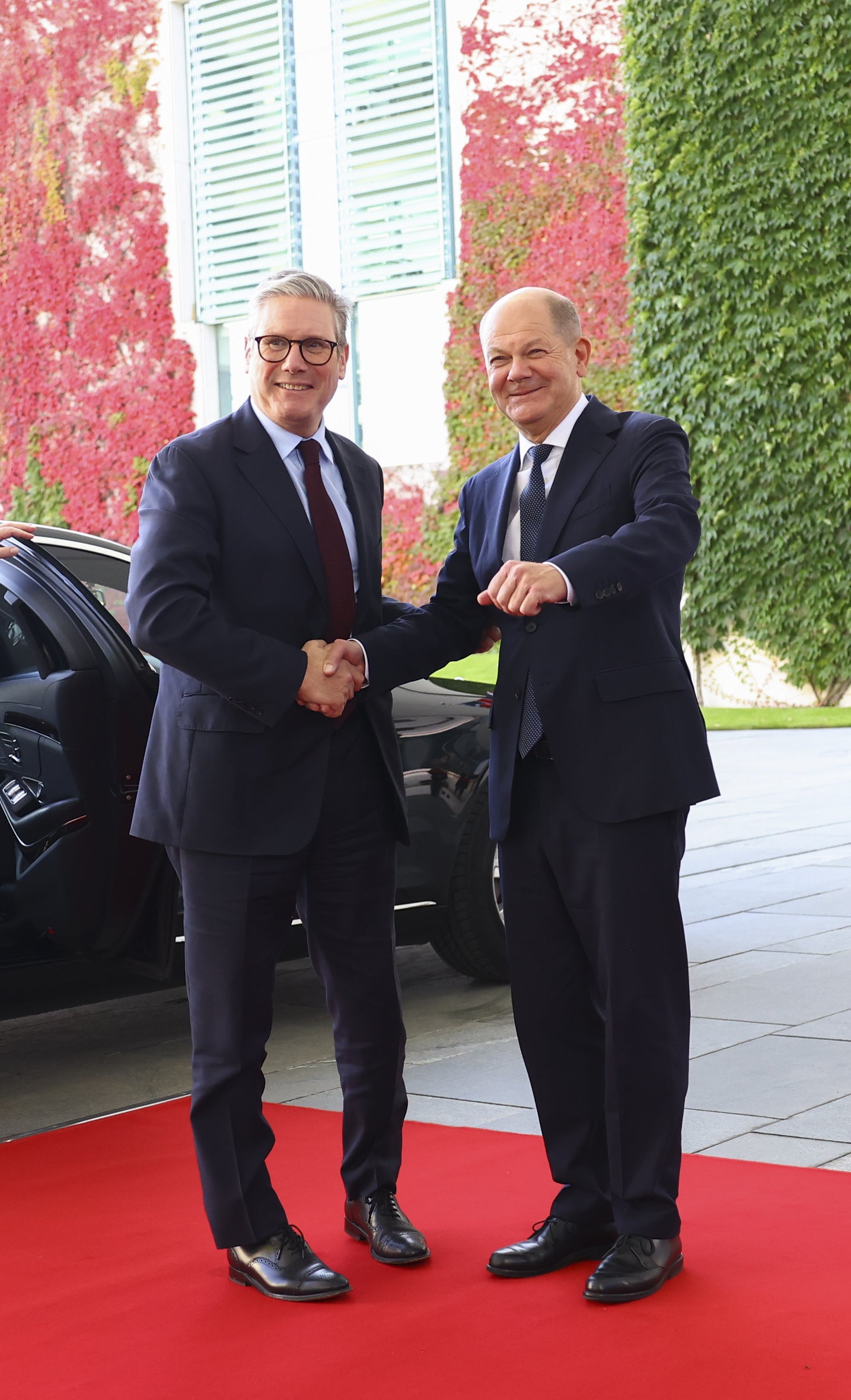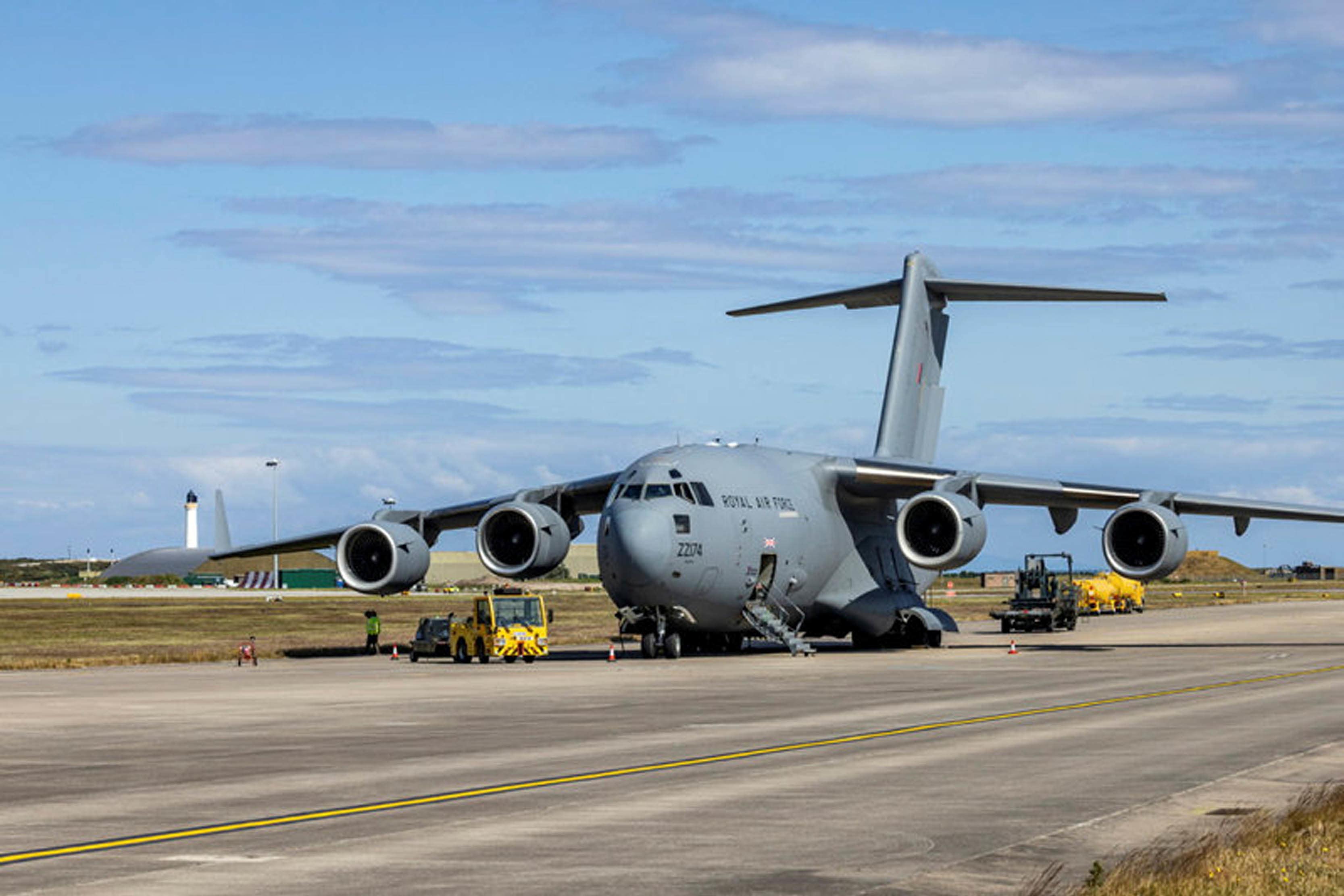Keir Starmer scores first major Brexit reset success with landmark defence deal
German air force to operate from base in Britain as part of new pact
Your support helps us to tell the story
From reproductive rights to climate change to Big Tech, The Independent is on the ground when the story is developing. Whether it's investigating the financials of Elon Musk's pro-Trump PAC or producing our latest documentary, 'The A Word', which shines a light on the American women fighting for reproductive rights, we know how important it is to parse out the facts from the messaging.
At such a critical moment in US history, we need reporters on the ground. Your donation allows us to keep sending journalists to speak to both sides of the story.
The Independent is trusted by Americans across the entire political spectrum. And unlike many other quality news outlets, we choose not to lock Americans out of our reporting and analysis with paywalls. We believe quality journalism should be available to everyone, paid for by those who can afford it.
Your support makes all the difference.Sir Keir Starmer has scored the first major breakthrough in his great Brexit reset with a landmark new defence deal with Germany.
Less than four months into his premiership, the prime minister has struck an agreement with the most influential and powerful member state in the European Union.
Under the plans, German aircraft in the Luftwaffe, Germany’s air force, will operate from a base in Britain to help protect the North Atlantic from the growing threat from Russia, while around 400 jobs are set to be created in a new munitions factory in the UK.
Defence secretary John Healey said the agreement represented a “major strengthening of Europe’s security” and was a “milestone moment” in the UK’s relationship with Germany.
But the prime minister was urged to go further in strengthening the UK’s relationship with the EU and seize other areas of cooperation.

Sir Nick Harvey, a former armed forces minister and the chief executive of the pro-EU campaign group, European Movement, described the deal as “excellent news for Britain, our defence and our industries. Germany is a crucial partner.”
But he added: “Keir Starmer and his new government should now follow through and take their reset in UK-EU relations into all the other major challenges we face together”.
As part of his reset, the prime minister has promised to fix Britain’s damaged relationship with the European Union for the benefit of “generations to come”.
Earlier this year there were reports Germany wanted to respond to Sir Keir’s proposed security pact with what was dubbed a post-Brexit “mega deal”, looking at everything from the rules around agriculture to student exchange programmes.
At the time Germany’s ambassador to the UK, Miguel Berger, told Politico: “We have a headline, which is security and cooperation. And beneath that, we think we should look for areas which are in the common interest.”
Naomi Smith, CEO of pro-EU campaign Best for Britain said: “With Russian aggression raging in our continent and interfering in democratic events across the West, the Trinity House Agreement is a welcome and meaningful step towards the establishment of more formal and mutually beneficial cooperation with our allies in Europe.”

Under the defence pact set to be signed on Wednesday, the Luftwaffe will operate from the Lossiemouth base in Scotland, using submarine-hunting planes in a bid to counter Russian aggression.
In response to potential threats from Putin’s activity at sea, the two countries will also work together to protect underwater cables.
German arms giant Rheinmetall is also set to open a factory producing artillery gun barrels using British steel.
And the allies will also collaborate on developing new drones and work together to develop long-range strike weapons that can travel further than the UK’s existing Storm Shadow missiles.
Mr Healey said: “The Trinity House Agreement is a milestone moment in our relationship with Germany, and a major strengthening of Europe’s security.
“It secures unprecedented levels of new cooperation with the German armed forces and industry, bringing benefits to our shared security and prosperity, protecting our shared values and boosting our defence industrial bases.”
He added: “We will build on this new cooperation in the months and years ahead.”
Other measures will include cooperation to strengthen Nato’s eastern flank and more support for Ukraine, including by equipping Sea King helicopters with modern missile systems.
German defence minister Boris Pistorius said: “We must not take security in Europe for granted. Russia is waging war against Ukraine, it is increasing its weapons production immensely and has repeatedly launched hybrid attacks on our partners in eastern Europe.
“With the Trinity House Agreement, we are showing that the Nato allies have recognised what these times require and are determined to improve their deterrence and defence capabilities.
“As it lays the foundation for future projects, the Trinity House Agreement is an important contribution to this.
“It is particularly important to me that we cooperate even more closely to strengthen Nato’s eastern flank and to close critical capability gaps, for instance in the field of long-range strike weapons.”
Lord Dannatt, the former head of the Army, told The Independent he welcomed the deal, saying the measures were “positive, especially the boost to UK industry arising from the manufacture of gun barrels”.
He added: “On day-to-day cooperation, this was very close between the British and German armies during the Cold War but has drifted somewhat subsequently. Hopefully, this new agreement will reignite that close cooperation and collaborative working.”
General Lord Richards, the former chief of defence staff, has told me he strongly supports this initiative and adds: “It should act as a catalyst for European-wide strengthening of military capability.”
Labour sources emphasised the speed at which the deal had been struck, less than 100 days after negotiations began, was an example of the government delivering on its pledges. The agreement is the culmination of years of work behind the scenes by the defence secretary, who in opposition spent time building relations with his German counterparts and called for a similar deal in a paper in 2023.
Helen Maguire, Liberal Democrat spokesperson for Defence, said: “At a time when Putin’s forces continue their illegal invasion of Ukraine, closer links with our allies on defence is a no-brainer.“Now we must go further and set our sights on securing a UK-EU defence and security agreement - which was on the table when Theresa May was Prime Minister. “
Join our commenting forum
Join thought-provoking conversations, follow other Independent readers and see their replies
Comments